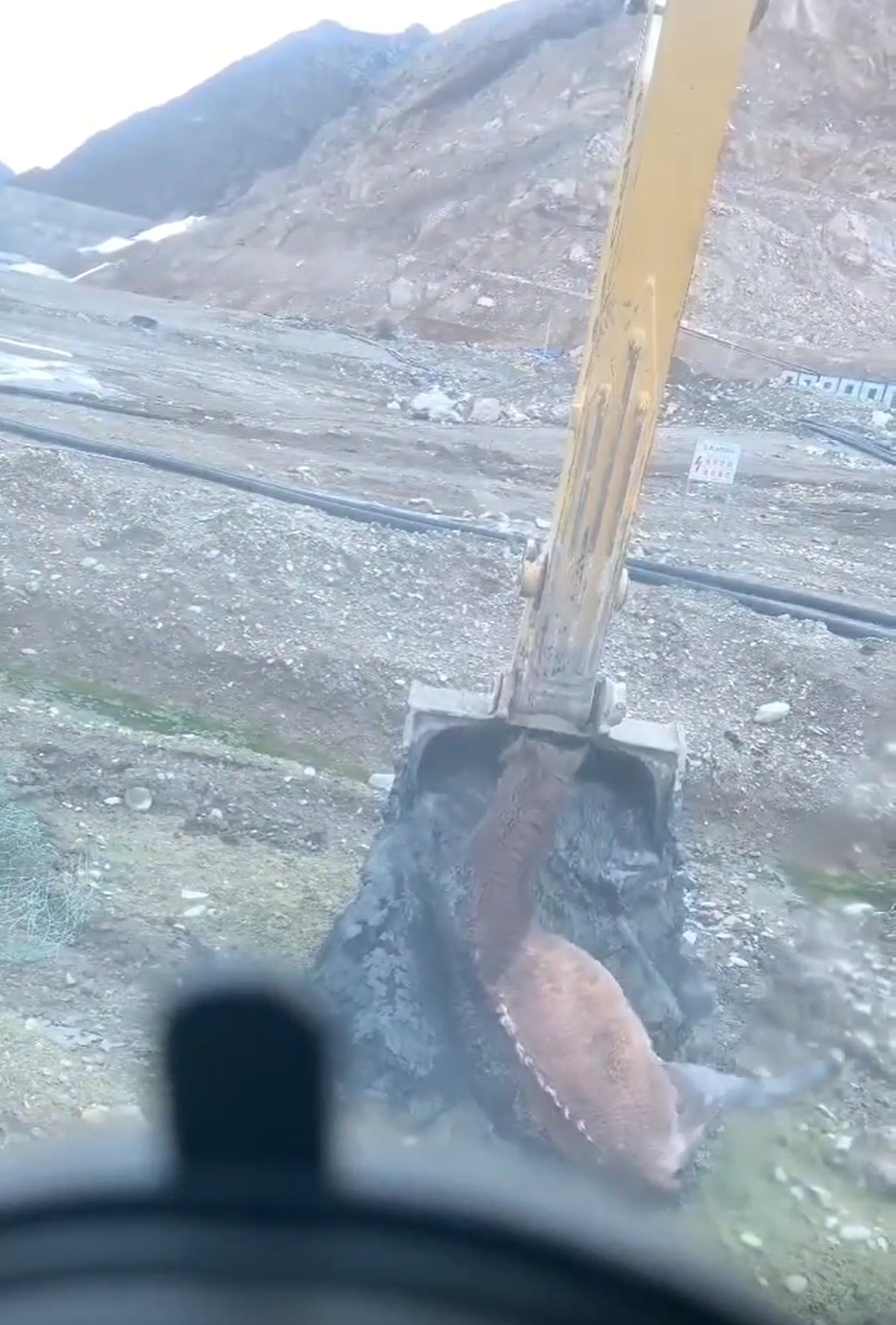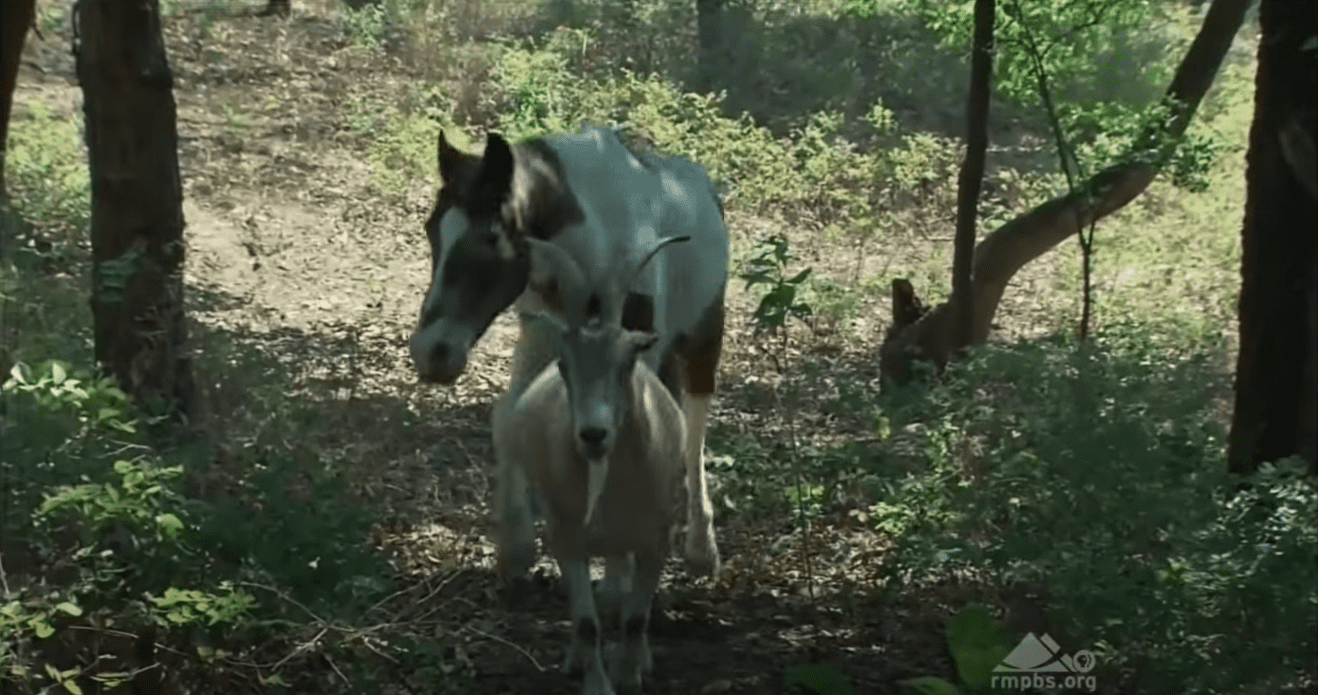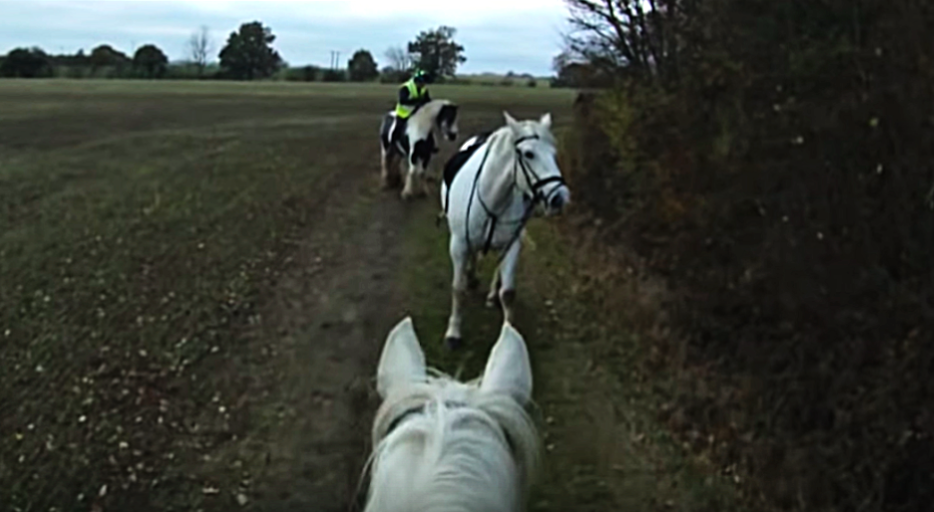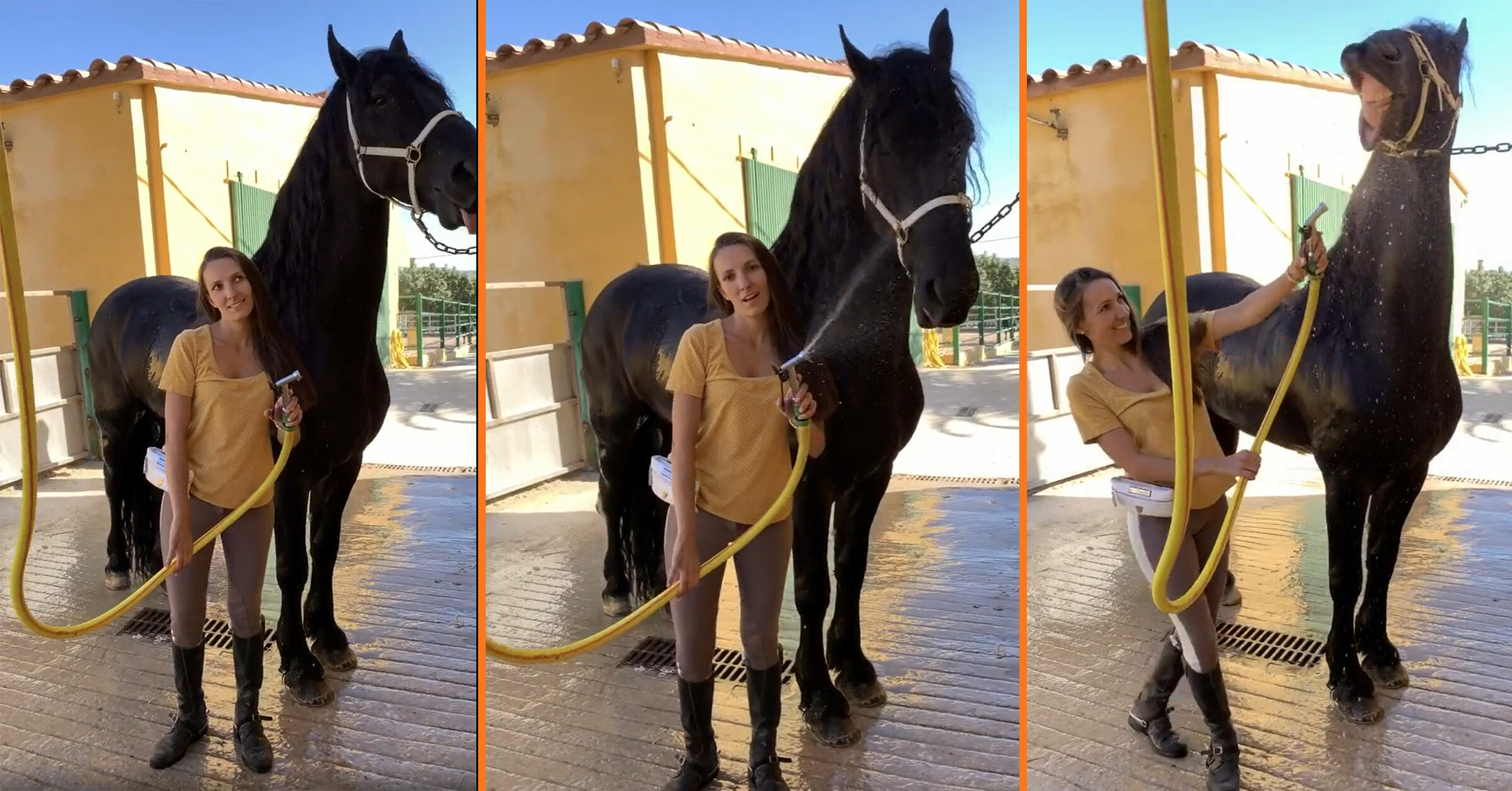Unfortunately, this horse got stuck in mud, but happily, it was rescued by excavator
Imagine your horse gets stuck in the mud or cement, like in this video. What would you do? Unfortunately, accidents like this happen, but fortunately, there are good people ready to help. This horse was helped by someone and taken out of the cement with the crane.

Horses are talented at getting themselves hurt. Sometimes in the most unexpected ways. For example, a horse lays down in a puddle to cool off, only to find there is no traction, and the suction from the mud/cement is holding it down, making getting up impossible.

So if you find a horse stuck in the mud/cement, immediately call emergency services (911 in the United States). Horses are prey animals. They have survived for thousands of years by running away from predators. A horse trapped in mud will panic and work itself to exhaustion trying to get out. Injury can be muscle strain, broken bones, or even death. Suppose the horse is lying on its side, approach from the back, away from the legs. If he is upright, with his rear end stuck, try to approach from the side.

And while you wait for help, keep the horse calm. It is vital that the horse remains as calm as possible and does not go into circulatory shock. Circulatory shock is a failure of the cardiovascular system to provide enough oxygen to the organs and tissues. It can quickly lead to death.

Once help arrives, they will work on getting the horse something solid for traction. This may be a commercial rescue board or simply a piece of plywood. In some cases, gravel may need to be added. But a horse should never be pulled out by the tail, legs, or neck. If the rescue team decides the horse needs to be lifted, they will put straps around the horse’s barrel. The straps are attached to a piece of machinery, such as a crane or backhoe. The horse will then be lifted out of the mud. The horse is usually sedated for this.
The horse will probably be wobbly at first and get its momentum back quickly. First, however, it is crucial that your veterinarian does a complete exam.”
Related Posts
-
 Goat Helps His Blind Horse Friend Get Around
No Comments | Dec 18, 2020
Goat Helps His Blind Horse Friend Get Around
No Comments | Dec 18, 2020 -
 Rider Experiences A Rough Fall From Her Horse In The Ditch
No Comments | Dec 24, 2020
Rider Experiences A Rough Fall From Her Horse In The Ditch
No Comments | Dec 24, 2020 -
 This majestic Friesian horse loves to play with the water
No Comments | Jun 3, 2021
This majestic Friesian horse loves to play with the water
No Comments | Jun 3, 2021 -
 Unbelievable: Fashionista Horse Rocks Fake Adidas Clothes in Hilarious Meme Video!
No Comments | May 10, 2023
Unbelievable: Fashionista Horse Rocks Fake Adidas Clothes in Hilarious Meme Video!
No Comments | May 10, 2023
